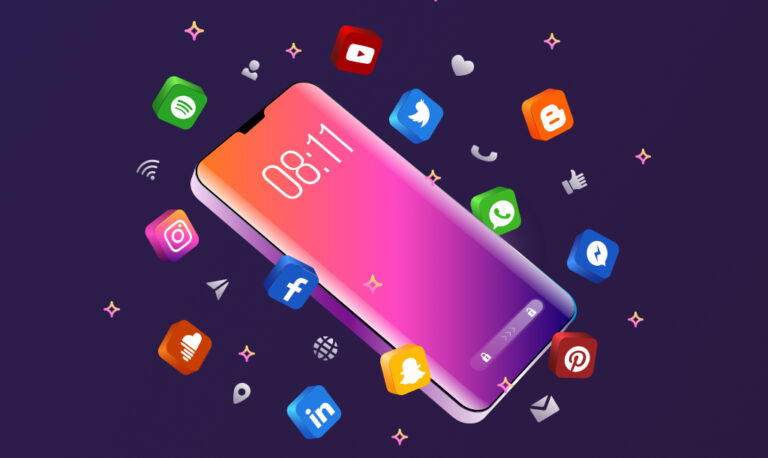We have seen a dramatic transformation of mobile apps in the last two decades.This reflects on-stop advancements and how much society now demands instant technology and innovation. Here’s a look at key areas in which apps have evolved while simultaneously transforming our lives.
Enhancing the user experience
In July 2008, the Apple App Store went live with 500 apps. As of June 2024, the figure approaches two million. To meet this ever-increasing user demand and expectation, the app experience has improved since the early days. Aesthetics now favour smaller screens such as on mobile phones.
Facebook was one of the first on the app scene and illustrates how app design has evolved to meet and anticipate user needs. The original Facebook app had bold buttons and a gradient navigation bar.To work better on smaller screens (the original design was essentially the website transported) the design evolved so there are now single-tone colours and drop-down menus.
Communication apps
The world has never been more connected and communication apps play a major role. Basic calling features are now joined by many other ways to communicate with others on your phone. Chat apps have met the need for people to have real-time conversations wherever they are. Apps such as WhatsApp, WeChat and Telegram are accepted and popular ways to communicate enabling users to engage in seamless conversations on the go.
The text-based apps were enhanced by multimedia sharing of photos and voice messages. Perhaps the biggest breakthrough has been group chats which allow friends, family and colleagues to interact and collaborate.

Mobile gaming
The global market for mobile gaming was around £75 billion in 2022 (up from £41 billion in 2018) and is projected to reach £110 billion by 2026. Modern online games can be complex, multiplayer experiences that are a far cry from the original Snake or Tetris games on phones.
HD games with intense, action-packed gaming are now the norm as are complex storylines withcinematic graphics. Not all gaming apps go down the complex narrative route.Bingo apps such as tombola prove there is still a market for old favourites that satisfy a need for instant results and possible rewards.
Organisational tools
With hybrid working here to stay, organisational apps are becoming more relevant. Some apps are designed to improve organisation such as project management and cloud integration tools. Real-time collaboration on notes or files can aid in personal and business tasks.
Business management apps help prioritise tasks according to their urgency and relevance. And many of them allow you to track tasks so you can see upcoming deadlines and reschedule accordingly. Perhaps the main benefit of organisational apps is they allow tasks to be centralised in one application, so your work is only ever a click away.
The future
Whether for work, rest or play, mobile apps continue to evolve for our benefit. The possibilities are intriguing, exciting and slightly scary with the use of super-fast 5G, augmented reality and AI to the fore. Hold on to your apps!

